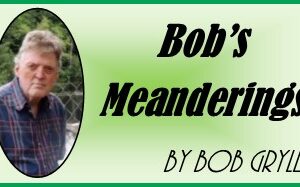The majority of people (95 percent of them) can’t go an entire week without telling at least one falsehood. Despite this earth-shattering news we can take comfort in recognizing that most of the lies people tell are ‘little white lies. But is a lie a lie, or isn’t it? Keep reading.
While the definitions of white lies vary a bit depending on the source, most attach a few defining criteria to the term. They tend to indicate that white lies, unlike what I will call “real lies” or “big lies,” are about small or inconsequential matters. The white lies are often described as being harmless to others. And the reason that the lies are told is to maintain polite social manners and courtesies.
Bill Clinton’s affair with Monica Lewinsky was another wake-up call for America and the political system. Instead of confessing to it, Clinton doubled down on his lie, “I did not have sexual relations with that woman,” one of the most famous presidential quotes ever. After more evidence came out, including a DNA sample from Lewinsky’s blue dress, Clinton changed his story and finally confessed under oath. He might always be known more for this lie than for his presidential accomplishments.
Let’s be honest. There are times when a white lie seems to be the least offensive thing to say. Someone gives you a gift you don’t like. Do you say you don’t like it or something such as: “Thanks for the thoughtful gift?”
Then, on a phone call with an acquaintance who goes on and on. You don’t want to hurt his feelings but can’t stand it any longer. Do you abruptly get off the phone or say something like: “I lost track of the time? I have to go now?”
I lost my job one time due to employer downsizing. It was a shock and humiliating. I hid it from my Ex for nearly three weeks. I’d dress for work, leave until she left for her job, then come home. When the truth finally came out, it was so relieving.
Interestingly it was found that “children told a white lie to someone who needed cheering up but had no hesitation to tell the blunt truth to a person who was neutral.”
The common thread in each of these situations is to avoid harm to another person. The key thing to remember is don’t tell a lie to avoid personal responsibility.
Here are a few examples of how to respond truthfully, without hurting someone’s feelings or compromising your relationship.
Instead of saying “I was stuck in traffic,’ consider telling the truth. Say that your son had a temper tantrum which caused the delay. You’re human after all, and these things happen!
Instead of saying the turkey meatloaf is delicious, consider saying: “This is a new taste for me, and I am enjoying eating something new.”
Instead of saying someone’s outfit is “absolutely beautiful,” consider saying: “I enjoy seeing you express yourself through fashion — you are a unique and beautiful individual!”
It’s necessary to be mindful of other people’s feelings, but that’s not the green light to engage in outright lies just to appear kind or save face.
I had a friend when I lived in Toronto. This guy was a sales manager for a medium-sized battery company. He was both confident and suave. Although he hadn’t finished high school, he saw a corporate general manager position required for an MBA grad. He fabricated a resume and submitted it. He not only had a good interview he was called back for a second. He made the short-list of four. By now, he felt he deserved that job and went to interview with great expectations. It was a grueling interview – he was told to stand by for a telephone call. The call came, he was congratulated and welcomed to the firm. All that was left was paperwork with Human Resources to secure it. He was on Cloud Nine but not for long. The company required a copy of his degree on file. He didn’t have one so was terminated before he started.
Like driving a car or walking a tightrope only practice can keep the white lies at a minimum.





![Kenopic/Smith Auction [Paid Ad]](https://whitewaternews.ca/wp-content/uploads/2018/10/advertising-100x75.jpeg)

